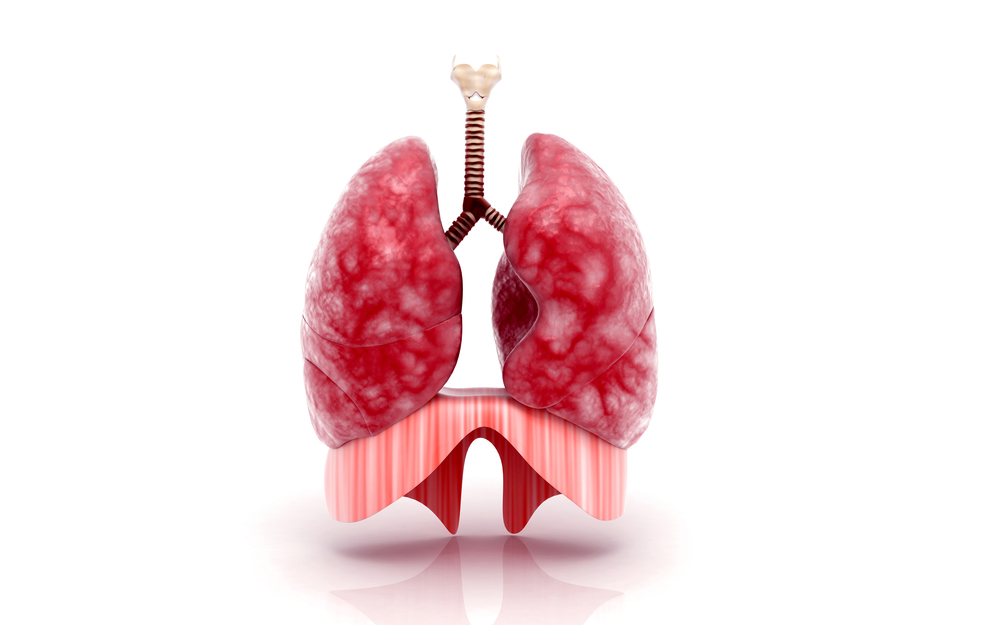DelMar Pharmaceuticals, Inc. a biopharmaceutical company that develops and commercializes new treatments for cancer, recently presented an outline of its planned clinical trial protocol for its lead drug candidate VAL-083 (dianhydrogalactitol) for the treatment of patients with a diagnosis of non-small cell lung cancer (NSCLC).
The Company recently presented its VAL-083 NSCLC clinical development proposal in a poster entitled, “Post-Market Clinical Trial of Dianhydrogalactitol in the Treatment of Relapsed or Refractory Non-Small Cell Lung Cancer” during the 16th World Conference on Lung Cancer, in Denver, Colorado.
VAL-083 is a “first-in-class” small molecule chemotherapeutic, which means that the molecular structure of VAL-083 is not an analogue or derivative of other small molecule chemotherapeutics approved for the treatment of cancer. VAL-083 has been assessed in 42 Phase 1 and Phase 2 clinical trials sponsored by the National Cancer Institutes (“NCI”) in the United States as a treatment for various cancers including lung, brain, cervical, ovarian tumors and leukemia. Published pre-clinical and clinical data suggest that VAL-083 may be active against a range of tumor types. VAL-083 is approved as a cancer chemotherapeutic in China for the treatment of CML and lung cancer.
The Chinese Food and Drug Administration (CFDA) have approved the drug for the treatment of lung cancer. However, the drug use in China has been limited due to be absence of recent data, poor distribution, and physicians inclination to prescribe drugs such as tyrosine kinase inhibitors (TKIs).
The VAL-083 clinical trial in patients with Relapsed or Refractory NSCLC is an open label post market Phase IV study that will assess the clinical activity of the drug in patients who have failed typical platinum doublet therapy.
The study primary aim is the assessment of the disease control rate, via objective response rate, stable disease (SD), complete (CR) and partial (PR) response rates. The clinical trial’s secondary outcomes are the assessment of overall survival (OS) and progression free survival (PFS). The clinical trial results will guide physicians on the best way to prescribe VAL-083 under current approval in China and clinical proof-of-concept to support DelMar’s global development of VAL-083 as a potential new treatment for NSCLC.
The study will be commenced in Shanghai under the terms of DelMar’s partnership with Guangxi Wuzhou Pharmaceutical (Group) Co., Ltd. Guangxi Wuzhou Pharmaceuticals will fund all VAL-083 clinical development in China and DelMar will manage the clinical studies.
“Earlier this year, we presented preclinical data supporting the potential of VAL-083 as a valuable therapeutic option in the modern treatment of lung cancer, particularly in patients who have failed or are unlikely to respond to current standard of care,” stated Jeffrey Bacha, president & CEO of DelMar Pharmaceuticals. “Our research also suggests that the combination of VAL-083 with either cisplatin or oxaliplatin provides a super-additive (synergistic) effect against NSCLC cell lines, including those resistant to TKI therapy in vitro. The upcoming Phase IV trial will further evaluate VAL-083’s potential to address a significant unmet need in platinum drug-resistant NSCLC. The clinical outcomes from this study will be important in developing additional CFDA treatment guidelines to expand VAL-083 beyond its currently approved indication in lung cancer in China.”
“Importantly, we believe data from this post-market study in China will also establish global proof-of-concept to support a global clinical development program with VAL-083 in NSCLC,” Mr. Bacha added.
Patients will receive 40 mg of VAL-083 per day intravenously (IV) for a period of five days. Patients will then rest for one or two weeks, and then patients will then receive maintenance therapy, which involves VAL-083 given IV in a dose of 40 mg per day for five days every 28 days.
Until withdrawal criteria are met or 12 cycles of therapy are completed, patients will continue to receive treatment. All patients under treatment will be monitored for quality-of-life, progression-free survival and objective clinical responses. Succeeding tumor assessments conducted at patients’ screening and assessment of tumor response corresponding to RECIST v1.1 will be documented before every new 28-day maintenance treatment cycle, beginning with maintenance Cycle #2.
Non-small cell lung cancer is the most common type of lung cancer. About 85% of lung cancers are non-small cell lung cancers. Squamous cell carcinoma, adenocarcinoma, and large cell carcinoma are all subtypes of non-small cell lung cancer.

